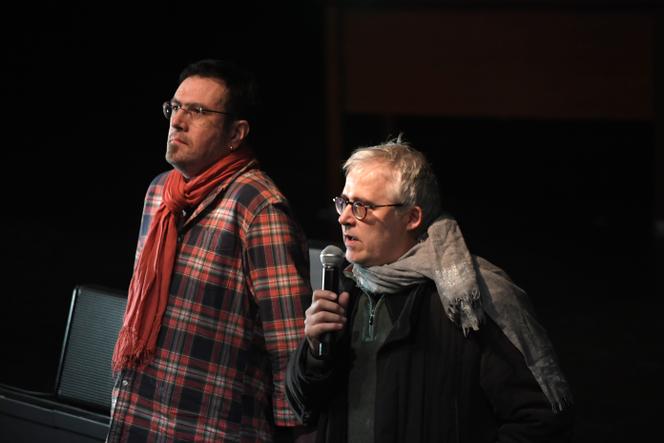


After seeing death so close nine years ago, Fred Dewilde, one of the survivors of the Bataclan terrorist attack of November 2015, died by suicide on Sunday, May 5, the victims' aid association Life for Paris, of which he was a member, announced on Tuesday. He was 58 years old.
A graphic artist and cartoonist, often described as a "gruff colossus," this gentle giant emerged physically unscathed from the Bataclan pit after spending two hours among the dead and dying. However, the "poison" of trauma finally caught up with him, wrote his family in a tribute sent to the press.
Since "that fateful evening on November 13, when he said that part of him was dead," his family wrote, Fred Dewilde had recounted his trauma and slow journey of psychological reconstruction through several graphic novels: Mon Bataclan, vivre encore ("My Bataclan, live on", 2016), La Morsure ("The Bite", 2018), Conversation avec ma mort ("A conversation with my death", 2021) and La Mort émoi (a play on the words "la mort et moi", or "death and me", 2022). Through these various works, he shared his encounter with death, which, as he was unaware at the time, followed him around.
"His immense appetite for life, driven by the love he gave as much as he received, his communicative energy, his caustic humor, his poignant works and his projects full of drawers were cut short in one night by an insurmountable suicidal impulse, rendering him deaf to any future. That night, a spark opened wide the unbearable wounds that had plagued him for so many years," his family wrote.
"We, his family, are shocked and devastated by the violence with which this devious poison spread by the terrorists of November 13, 2015, relentlessly struck him after more than nine years of relentless resistance. They killed him a second time, without a second chance of 'survival' [...]. But through everything he shared with us, Fred will continue to show us the way forward: how attention to others heals wounds, how much speech liberates, how much respect for others solves ills, how much fraternity makes strength."
Dewilde is not the first Bataclan survivor to die by suicide. Two years after the attacks that killed 130 people at the Stade de France, on café terraces in eastern Paris and in the concert hall, Guillaume Valette, who also emerged physically unharmed from the Bataclan pit, was found hanged on November 19, 2017, in his room at the Val-de-Marne, southeast of Paris, psychiatric clinic, where he had been admitted a month and a half earlier. He was posthumously recognized, in 2019, as the 131st victim of these attacks. He was 31 years old.
During the trial for the November 13 attacks, in October 2021, his father, Alain, took the stand to recount the two years of hell his son went through after leaving the pit: "Guillaume wasn't shot in the body, but by invisible bullets, which killed him, slowly but surely. In the two years that followed, his mental state deteriorated, like gangrene. His story leads me to say that invisible wounds should be better understood," he insisted. "Attacks generate psychic wounds so serious that they can drive people to suicide, like some soldiers returning from combat zones."
France-Elodie Besnier was not at the Bataclan that evening. She was sitting on the terrace of the bar Le Carillon, just down the street from her home, when three members of the commandos opened fire with Kalashnikovs. She too escaped live ammunition. She too eventually died from her psychological wounds. On November 6, 2021, two months after the opening of the trial, she took her own life. She was 35 years old.
Translation of an original article published in French on lemonde.fr; the publisher may only be liable for the French version.
